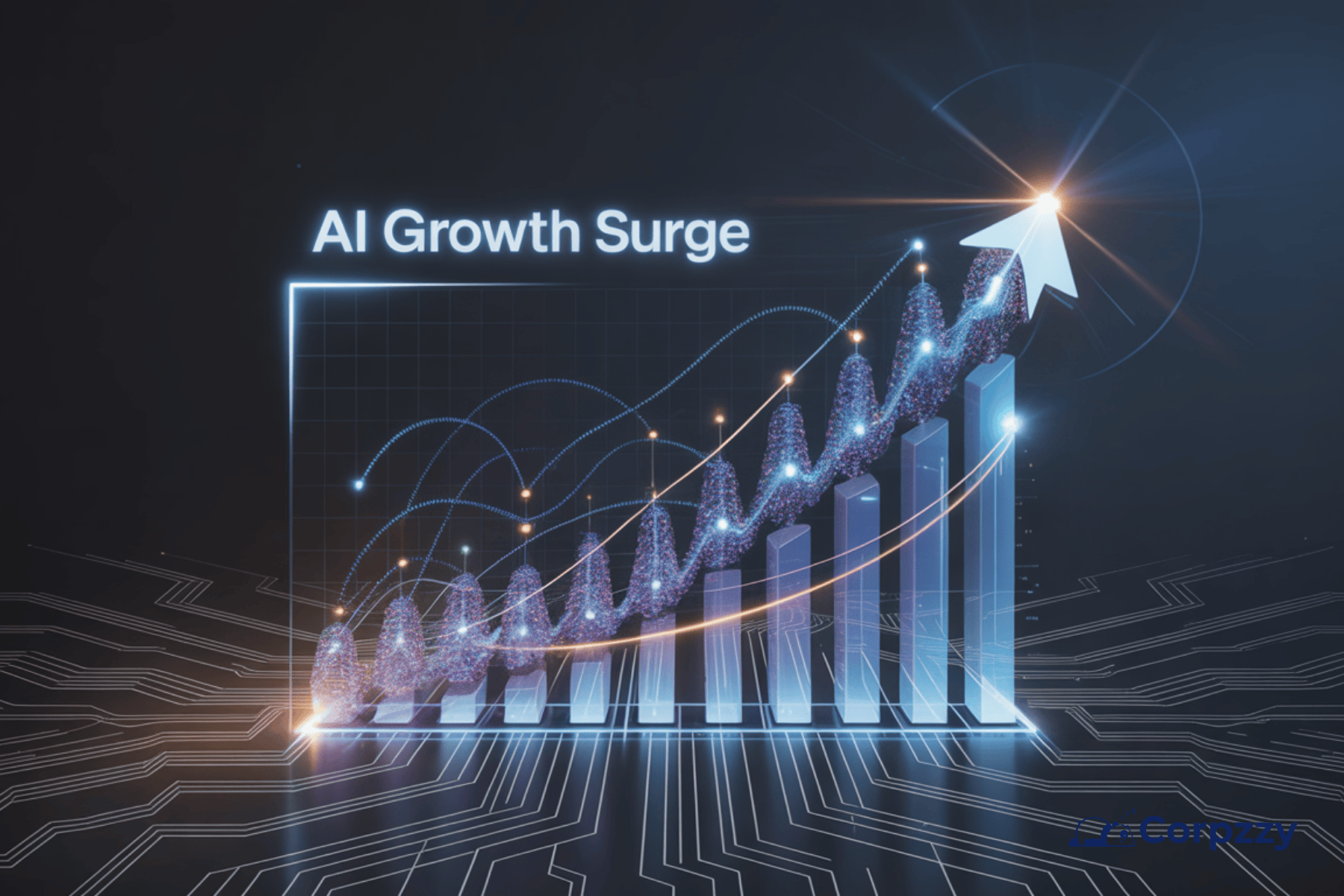Boosting Sales with AI: Predict, Personalize, and Convert Smarter
Boosting Sales with AI: Predict, Personalize, and Convert Smarter
Outline

In today’s competitive global market, businesses are seeking smarter ways to drive sales and engage customers. Artificial Intelligence (AI) offers a powerful solution by enabling data-driven decision-making, precision targeting, and scalable personalization. From small e-commerce stores in Southeast Asia to enterprise B2B firms in Europe, AI is becoming a cornerstone of modern sales strategies. The ability to predict customer needs and deliver timely, personalized messages has transformed how businesses convert leads into loyal customers.
This article explores how AI tools can sharpen your sales funnel—from predicting behavior and segmenting customers to crafting personalized experiences and automating follow-ups. We’ll also examine how businesses in high-growth markets like Singapore, Malaysia, and the UK are integrating AI to gain competitive advantages. Whether you’re a founder, marketing executive, or sales manager, the insights below can help you unlock new revenue streams with precision and efficiency. Let’s dive into how AI is changing the sales game.
Understanding AI’s Role in Modern Sales
AI in sales refers to the use of machine learning, data analytics, and natural language processing to understand customer behavior and automate decision-making. It can analyze thousands of data points in real time to help businesses understand what their customers are likely to do next. Tools like predictive lead scoring, dynamic pricing, and customer segmentation are now within reach of even mid-sized companies. According to Salesforce, 57% of sales leaders say AI helps improve forecasting accuracy (Salesforce, 2023).
Modern AI tools aren’t just for tech giants anymore. SaaS platforms like HubSpot, Zoho CRM, and Salesforce offer plug-and-play AI features for sales forecasting, lead prioritization, and chatbot engagement. This democratization of AI is particularly valuable in regions like Southeast Asia, where SMEs are looking to scale quickly with limited resources. By adopting AI, these businesses can compete with larger players without significantly increasing headcount or overhead.
Predictive Analytics: Anticipating What Customers Want
One of AI’s most powerful applications in sales is predictive analytics, which uses historical data to forecast future customer behavior. This allows companies to prioritize high-intent leads, refine marketing efforts, and tailor promotions to individual buyer profiles. McKinsey reports that companies using predictive analytics see a 10-20% increase in marketing ROI (McKinsey, 2021). With predictive models, sales teams no longer waste time on cold leads—they focus on prospects most likely to convert.
In Southeast Asia, where digital adoption has surged post-pandemic, predictive tools are especially helpful in managing customer lifecycles across multiple channels. A Singapore-based fintech firm, for example, used AI to analyze app usage and predict which users were likely to churn, enabling targeted re-engagement. This approach increased retention by 18% in just one quarter. The ability to act on such insights in real-time is what sets AI-powered companies apart from the rest.
Personalization at Scale: Smarter Customer Engagement
Customers today expect personalization—not just in content, but in timing, tone, and offer relevance. AI enables businesses to create personalized experiences at scale by analyzing customer data and behavior. Tools like dynamic email content, tailored landing pages, and real-time chatbots help deliver these experiences across channels. According to Accenture, 91% of consumers are more likely to shop with brands that recognize, remember, and provide relevant offers (Accenture, 2022).
In Malaysia, growing e-commerce brands are using AI-driven personalization engines to show visitors different products based on their browsing history and location. These technologies are helping brands convert window-shoppers into buyers by improving product discovery and reducing bounce rates. This hyper-personal approach is especially effective in regions with culturally diverse consumers, where a one-size-fits-all strategy fails. AI ensures that each customer journey feels unique, even at high traffic volumes.
AI-Powered Chatbots and Virtual Assistants
Chatbots powered by AI can handle customer inquiries 24/7, qualify leads, and schedule meetings without human intervention. These bots use natural language processing to engage in intelligent, human-like conversations that keep customers informed and interested. IBM reports that businesses using chatbots can reduce customer service costs by up to 30% while maintaining satisfaction (IBM, 2023). They’re also effective in capturing top-of-funnel interest and nudging users toward conversion.
In markets like the UK and Australia, where consumer expectations for instant service are high, companies have adopted multilingual chatbots to serve diverse user bases. Local SMEs in Singapore and KL are leveraging platforms like Intercom and Tidio to automate lead qualification and provide product recommendations. This not only improves conversion rates but also shortens the sales cycle dramatically. With AI doing the heavy lifting, human reps can focus on complex deals and strategic accounts.
Smart Lead Scoring and Qualification
Lead scoring traditionally involved assigning points based on basic actions—like opening an email or visiting a pricing page. AI takes this further by analyzing patterns across thousands of data points, including CRM history, behavioral cues, and buying signals. Forrester found that AI-powered lead scoring improves close rates by as much as 20% (Forrester, 2022). This enables sales reps to prioritize efforts where it matters most.
For businesses operating in crowded B2B sectors like software or consulting, AI-enhanced lead scoring filters out noise and highlights warm leads. A tech solutions firm in London recently integrated AI scoring into their CRM and reported a 25% increase in sales-qualified leads within two months. By ranking prospects using dynamic data, businesses can shift from reactive to proactive selling. This data-backed prioritization is crucial in high-value sales environments where timing is everything.
Automating Repetitive Sales Tasks
Sales reps spend a significant amount of time on administrative tasks like data entry, email follow-ups, and meeting scheduling. AI can automate these repetitive tasks, freeing up time for relationship-building and closing deals. According to InsideSales, reps spend only 35% of their time actually selling, but AI can raise that dramatically by automating low-value work (InsideSales, 2020). Automation doesn’t just save time—it also reduces human error and speeds up decision-making.
Tools like Drift, Outreach, and HubSpot automate personalized follow-up sequences and auto-fill CRM fields, reducing manual entry errors. In Southeast Asian markets where SMEs often work with lean teams, automation is especially valuable. A startup in Jakarta used AI to automate 60% of its lead nurturing emails, doubling their response rate in under a month. When teams can focus more on strategy and less on busywork, revenue grows faster.
Sales Forecasting and Pipeline Visibility
Accurate forecasting is key to operational planning and cash flow management. AI improves forecast reliability by analyzing historical sales data, market trends, and even external variables like seasonality and economic indicators. Harvard Business Review found that companies using AI for sales forecasting see 50% higher forecast accuracy (HBR, 2023). This helps leaders allocate resources wisely and prepare for demand shifts.
In Malaysia and Singapore, where cross-border logistics can affect delivery timelines, better forecasting improves inventory decisions and supply chain coordination. Companies using AI-driven dashboards can see real-time pipeline health and revenue predictions at a glance. This agility allows faster pivots and better alignment between sales and operations. The ability to plan with confidence is a major advantage in uncertain markets.
Regional Case Studies: Southeast Asia and Beyond
In Southeast Asia, businesses are seeing impressive results from AI-powered sales tools. A Thai healthtech firm adopted predictive analytics and lead nurturing automation, increasing its conversion rate by 30% in Q2 2024. In Singapore, a professional services company integrated AI chatbots into its website and cut down manual lead qualification by 70%. These success stories demonstrate that AI is not just for Silicon Valley—it’s globally applicable.
Across the UK and Europe, GDPR-compliant AI tools are being implemented to balance personalization and privacy. For example, a London-based financial advisory firm used AI to analyze client engagement and segment its database for targeted campaigns, boosting response rates by 40%. Businesses across regions are discovering that AI, when used responsibly, enhances both compliance and conversion. Localization, data ethics, and automation go hand in hand.
Ethical Considerations and Guardrails
As AI becomes more integrated in sales, companies must implement ethical frameworks to protect customer data and build trust. This includes transparent data usage, opt-out options, and clear consent protocols, especially in regulated industries. Singapore’s Personal Data Protection Act (PDPA) and the EU’s GDPR provide strong benchmarks for ethical AI implementation. Responsible AI usage isn’t just about compliance—it’s about earning long-term customer loyalty.
Training sales teams on how AI works also helps reduce over-reliance and fosters responsible usage. Businesses should audit AI tools regularly for bias, accuracy, and unintended consequences. Partnering with reputable vendors and prioritizing explainability will ensure AI enhances human judgment rather than replaces it. As customers become more aware of how their data is used, transparency will be key to conversion and retention alike.
Conclusion: AI as a Growth Multiplier for Sales
AI is no longer a futuristic concept—it’s a present-day sales engine that fuels growth, efficiency, and smarter decisions. Whether you’re a startup in Kuala Lumpur or an established firm in London, integrating AI into your sales strategy can significantly improve your ability to predict, personalize, and convert. The key lies in choosing the right tools, aligning them with your business goals, and maintaining ethical safeguards.
As the global economy becomes more digitized, early adopters of AI in sales will outpace competitors and capture more market share. By using AI to automate the routine and enhance the strategic, businesses can foster deeper customer relationships and unlock new revenue potential. In this new era of selling, the smartest move you can make is letting your data—and your AI—work for you.
Sources
- Salesforce, “State of Sales,” 2023
- McKinsey & Company, “The future of personalization—and how to get ready for it,” 2021
- Accenture, “Personalization Pulse Check,” 2022
- IBM, “Chatbot statistics you need to know,” 2023
- Forrester, “AI Drives B2B Sales Productivity,” 2022
- Harvard Business Review (HBR), “How AI Is Changing Sales,” 2023
- InsideSales.com, “Time Management for Sales Reps,” 2020
Frequently Asked Questions
Questions? We Have Answers
Related Business Articles
Share This Story, Choose Your Platform!


In today’s competitive global market, businesses are seeking smarter ways to drive sales and engage customers. Artificial Intelligence (AI) offers a powerful solution by enabling data-driven decision-making, precision targeting, and scalable personalization. From small e-commerce stores in Southeast Asia to enterprise B2B firms in Europe, AI is becoming a cornerstone of modern sales strategies. The ability to predict customer needs and deliver timely, personalized messages has transformed how businesses convert leads into loyal customers.
This article explores how AI tools can sharpen your sales funnel—from predicting behavior and segmenting customers to crafting personalized experiences and automating follow-ups. We’ll also examine how businesses in high-growth markets like Singapore, Malaysia, and the UK are integrating AI to gain competitive advantages. Whether you’re a founder, marketing executive, or sales manager, the insights below can help you unlock new revenue streams with precision and efficiency. Let’s dive into how AI is changing the sales game.
Understanding AI’s Role in Modern Sales
AI in sales refers to the use of machine learning, data analytics, and natural language processing to understand customer behavior and automate decision-making. It can analyze thousands of data points in real time to help businesses understand what their customers are likely to do next. Tools like predictive lead scoring, dynamic pricing, and customer segmentation are now within reach of even mid-sized companies. According to Salesforce, 57% of sales leaders say AI helps improve forecasting accuracy (Salesforce, 2023).
Modern AI tools aren’t just for tech giants anymore. SaaS platforms like HubSpot, Zoho CRM, and Salesforce offer plug-and-play AI features for sales forecasting, lead prioritization, and chatbot engagement. This democratization of AI is particularly valuable in regions like Southeast Asia, where SMEs are looking to scale quickly with limited resources. By adopting AI, these businesses can compete with larger players without significantly increasing headcount or overhead.
Predictive Analytics: Anticipating What Customers Want
One of AI’s most powerful applications in sales is predictive analytics, which uses historical data to forecast future customer behavior. This allows companies to prioritize high-intent leads, refine marketing efforts, and tailor promotions to individual buyer profiles. McKinsey reports that companies using predictive analytics see a 10-20% increase in marketing ROI (McKinsey, 2021). With predictive models, sales teams no longer waste time on cold leads—they focus on prospects most likely to convert.
In Southeast Asia, where digital adoption has surged post-pandemic, predictive tools are especially helpful in managing customer lifecycles across multiple channels. A Singapore-based fintech firm, for example, used AI to analyze app usage and predict which users were likely to churn, enabling targeted re-engagement. This approach increased retention by 18% in just one quarter. The ability to act on such insights in real-time is what sets AI-powered companies apart from the rest.
Personalization at Scale: Smarter Customer Engagement
Customers today expect personalization—not just in content, but in timing, tone, and offer relevance. AI enables businesses to create personalized experiences at scale by analyzing customer data and behavior. Tools like dynamic email content, tailored landing pages, and real-time chatbots help deliver these experiences across channels. According to Accenture, 91% of consumers are more likely to shop with brands that recognize, remember, and provide relevant offers (Accenture, 2022).
In Malaysia, growing e-commerce brands are using AI-driven personalization engines to show visitors different products based on their browsing history and location. These technologies are helping brands convert window-shoppers into buyers by improving product discovery and reducing bounce rates. This hyper-personal approach is especially effective in regions with culturally diverse consumers, where a one-size-fits-all strategy fails. AI ensures that each customer journey feels unique, even at high traffic volumes.
AI-Powered Chatbots and Virtual Assistants
Chatbots powered by AI can handle customer inquiries 24/7, qualify leads, and schedule meetings without human intervention. These bots use natural language processing to engage in intelligent, human-like conversations that keep customers informed and interested. IBM reports that businesses using chatbots can reduce customer service costs by up to 30% while maintaining satisfaction (IBM, 2023). They’re also effective in capturing top-of-funnel interest and nudging users toward conversion.
In markets like the UK and Australia, where consumer expectations for instant service are high, companies have adopted multilingual chatbots to serve diverse user bases. Local SMEs in Singapore and KL are leveraging platforms like Intercom and Tidio to automate lead qualification and provide product recommendations. This not only improves conversion rates but also shortens the sales cycle dramatically. With AI doing the heavy lifting, human reps can focus on complex deals and strategic accounts.
Smart Lead Scoring and Qualification
Lead scoring traditionally involved assigning points based on basic actions—like opening an email or visiting a pricing page. AI takes this further by analyzing patterns across thousands of data points, including CRM history, behavioral cues, and buying signals. Forrester found that AI-powered lead scoring improves close rates by as much as 20% (Forrester, 2022). This enables sales reps to prioritize efforts where it matters most.
For businesses operating in crowded B2B sectors like software or consulting, AI-enhanced lead scoring filters out noise and highlights warm leads. A tech solutions firm in London recently integrated AI scoring into their CRM and reported a 25% increase in sales-qualified leads within two months. By ranking prospects using dynamic data, businesses can shift from reactive to proactive selling. This data-backed prioritization is crucial in high-value sales environments where timing is everything.
Automating Repetitive Sales Tasks
Sales reps spend a significant amount of time on administrative tasks like data entry, email follow-ups, and meeting scheduling. AI can automate these repetitive tasks, freeing up time for relationship-building and closing deals. According to InsideSales, reps spend only 35% of their time actually selling, but AI can raise that dramatically by automating low-value work (InsideSales, 2020). Automation doesn’t just save time—it also reduces human error and speeds up decision-making.
Tools like Drift, Outreach, and HubSpot automate personalized follow-up sequences and auto-fill CRM fields, reducing manual entry errors. In Southeast Asian markets where SMEs often work with lean teams, automation is especially valuable. A startup in Jakarta used AI to automate 60% of its lead nurturing emails, doubling their response rate in under a month. When teams can focus more on strategy and less on busywork, revenue grows faster.
Sales Forecasting and Pipeline Visibility
Accurate forecasting is key to operational planning and cash flow management. AI improves forecast reliability by analyzing historical sales data, market trends, and even external variables like seasonality and economic indicators. Harvard Business Review found that companies using AI for sales forecasting see 50% higher forecast accuracy (HBR, 2023). This helps leaders allocate resources wisely and prepare for demand shifts.
In Malaysia and Singapore, where cross-border logistics can affect delivery timelines, better forecasting improves inventory decisions and supply chain coordination. Companies using AI-driven dashboards can see real-time pipeline health and revenue predictions at a glance. This agility allows faster pivots and better alignment between sales and operations. The ability to plan with confidence is a major advantage in uncertain markets.
Regional Case Studies: Southeast Asia and Beyond
In Southeast Asia, businesses are seeing impressive results from AI-powered sales tools. A Thai healthtech firm adopted predictive analytics and lead nurturing automation, increasing its conversion rate by 30% in Q2 2024. In Singapore, a professional services company integrated AI chatbots into its website and cut down manual lead qualification by 70%. These success stories demonstrate that AI is not just for Silicon Valley—it’s globally applicable.
Across the UK and Europe, GDPR-compliant AI tools are being implemented to balance personalization and privacy. For example, a London-based financial advisory firm used AI to analyze client engagement and segment its database for targeted campaigns, boosting response rates by 40%. Businesses across regions are discovering that AI, when used responsibly, enhances both compliance and conversion. Localization, data ethics, and automation go hand in hand.
Ethical Considerations and Guardrails
As AI becomes more integrated in sales, companies must implement ethical frameworks to protect customer data and build trust. This includes transparent data usage, opt-out options, and clear consent protocols, especially in regulated industries. Singapore’s Personal Data Protection Act (PDPA) and the EU’s GDPR provide strong benchmarks for ethical AI implementation. Responsible AI usage isn’t just about compliance—it’s about earning long-term customer loyalty.
Training sales teams on how AI works also helps reduce over-reliance and fosters responsible usage. Businesses should audit AI tools regularly for bias, accuracy, and unintended consequences. Partnering with reputable vendors and prioritizing explainability will ensure AI enhances human judgment rather than replaces it. As customers become more aware of how their data is used, transparency will be key to conversion and retention alike.
Conclusion: AI as a Growth Multiplier for Sales
AI is no longer a futuristic concept—it’s a present-day sales engine that fuels growth, efficiency, and smarter decisions. Whether you’re a startup in Kuala Lumpur or an established firm in London, integrating AI into your sales strategy can significantly improve your ability to predict, personalize, and convert. The key lies in choosing the right tools, aligning them with your business goals, and maintaining ethical safeguards.
As the global economy becomes more digitized, early adopters of AI in sales will outpace competitors and capture more market share. By using AI to automate the routine and enhance the strategic, businesses can foster deeper customer relationships and unlock new revenue potential. In this new era of selling, the smartest move you can make is letting your data—and your AI—work for you.
Sources
- Salesforce, “State of Sales,” 2023
- McKinsey & Company, “The future of personalization—and how to get ready for it,” 2021
- Accenture, “Personalization Pulse Check,” 2022
- IBM, “Chatbot statistics you need to know,” 2023
- Forrester, “AI Drives B2B Sales Productivity,” 2022
- Harvard Business Review (HBR), “How AI Is Changing Sales,” 2023
- InsideSales.com, “Time Management for Sales Reps,” 2020
Frequently Asked Questions
Questions? We Have Answers
Share This Story, Choose Your Platform!




